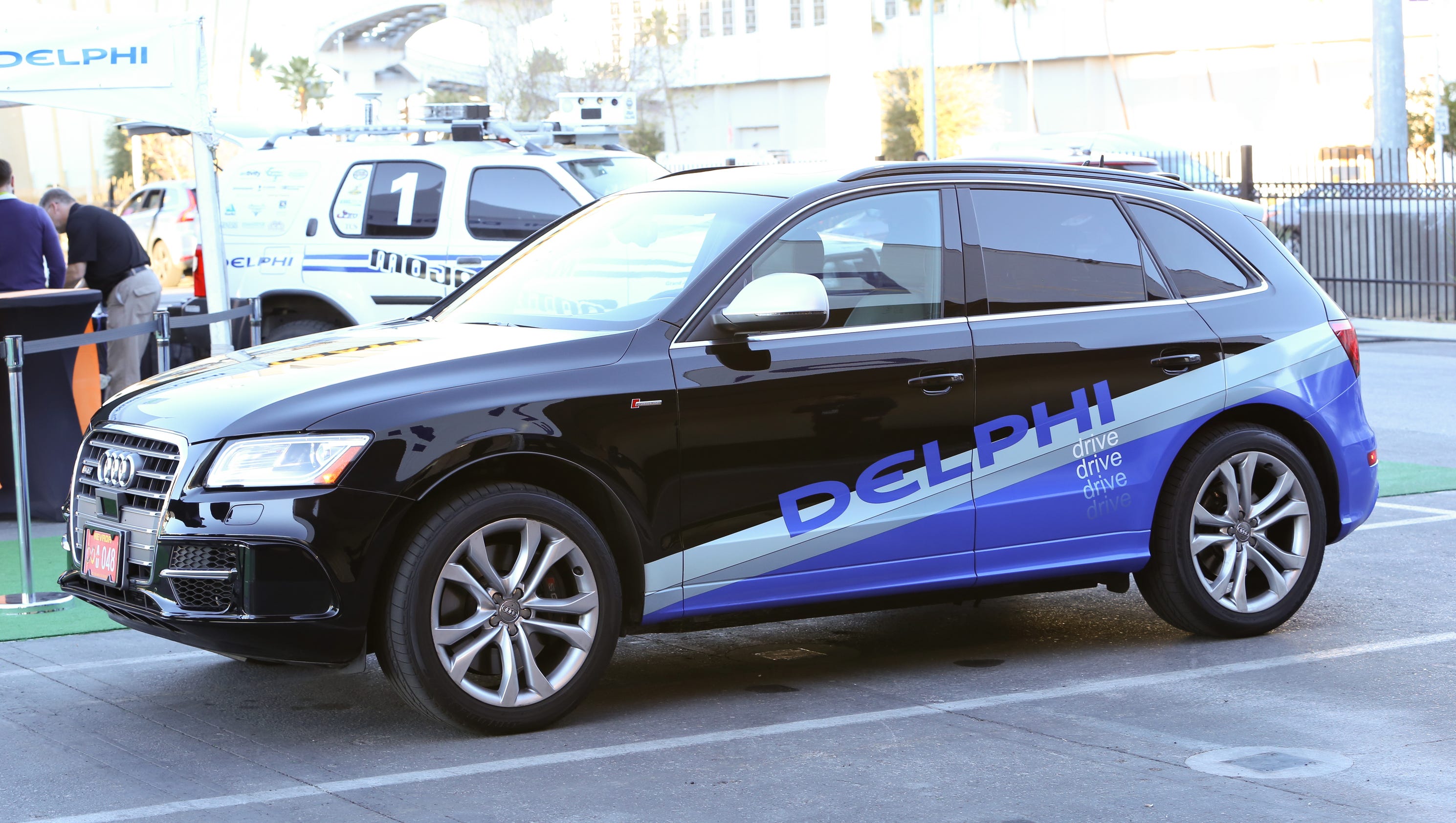
Last month, auto supplier Delphi demonstrated a self-driving Audi at CES in Las Vegas. If that sounds familiar, it’s because Delphi showed a self-driving Audi at CES last year, too. (In 2014, Delphi had a self-driving Tesla on hand instead.)
Delphi isn’t the only company that has turned autonomous tech into the car industry’s broken record, of course. Barely a week goes by that an automaker or supplier or legislator or regulator isn’t on a stage somewhere talking about the promise of autonomous driving. Everyone from Audi to Google has made self-driving ("or piloted driving," in Audi parlance) a central theme of their marketing campaigns.
I call this phenomenon — the endless, incremental announcement and re-announcement of advancements in self-driving tech without any appreciable user-facing benefit — the "hype gap." The hype gap is the distance between the promise of a technology and its actual delivery, if there ever is one at all. As someone who covers this stuff, it’s an ever-present threat to my sanity. And with self-driving in particular, I also fear that it’s going to impact the ability of the auto and tech industries to hold the public’s attention long enough to help realize some of the more ambitious promises of the technology in any reasonable amount of time.
Read more:
http://www.theverge.com/2016/2/19/11065044/self-driving-car-technology-hype-gap










Δεν υπάρχουν σχόλια:
Δημοσίευση σχολίου